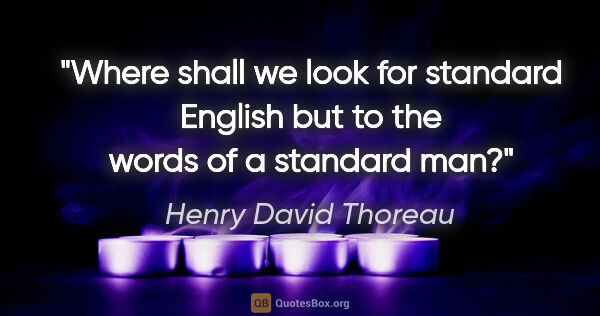English Quotes (page 27)
Chalmers, like many of the English writers whom he then most admired, felt a strong natural sympathy with everything French. At Rouen he imagined himself as having escaped into a world in which it was possible to speak openly and unaffectedly of all those subjects which in England must be introduced by an apology or guarded with a sneer - poetry, metaphysics, romantic love.
Christopher Isherwood
In many college English courses the words “myth” and “symbol” are given a tremendous charge of significance. You just ain’t no good unless you can see a symbol hiding, like a scared gerbil, under every page. And in many creative writing course the little beasts multiply, the place swarms with them. What does this Mean? What does that Symbolize? What is the Underlying Mythos? Kids come lurching out of such courses with a brain full of gerbils. And they sit down and write a lot of empty...
Ursula K. Le Guin

The inferior position of blacks, the exclusion of Indians from the new society, the establishment of supremacy for the rich and powerful in the new nation--all this was already settled in the colonies by the time of the Revolution. With the English out of the way, it could now be put on paper, solidified, regularized, made legitimate by the Constitution of the United States.
Howard Zinn
That the speech of self-disclosure should be translatable seems to me very odd, but I am convinced that it is. The conclusion that I draw is that the only quality which all human being without exception possess is uniqueness: any characteristic, on the other hand, which one individual can be recognized as having in common with another, like red hair or the English language, implies the existence of other individual qualities which this classification excludes.
W. H. Auden
And there was never a better time to delve for pleasure in language than the sixteenth century, when novelty blew through English like a spring breeze. Some twelve thousand words, a phenomenal number, entered the language between 1500 and 1650, about half of them still in use today, and old words were employed in ways not tried before. Nouns became verbs and adverbs; adverbs became adjectives. Expressions that could not have grammatically existed before - such as 'breathing one's last' and...
Bill Bryson

